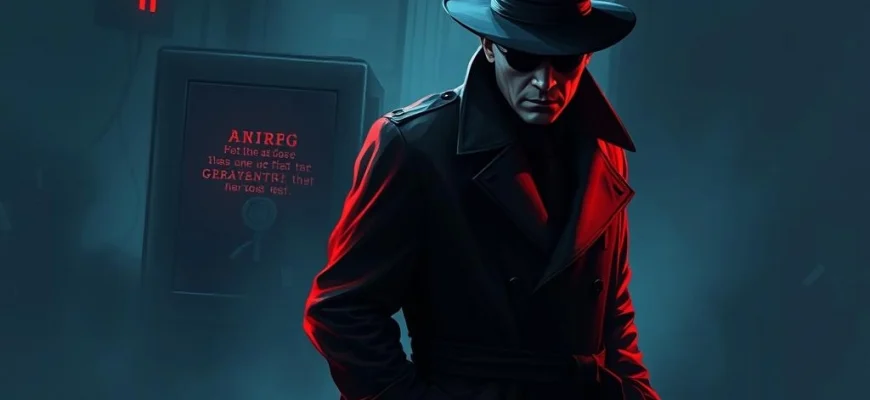If you were captivated by the intrigue and psychological depth of Colonel Redl (1985), this article is for you. We’ve curated a list of 10 gripping movies and shows that share its themes of espionage, betrayal, and moral ambiguity. Whether you’re drawn to historical dramas or complex character studies, these recommendations will keep you on the edge of your seat.

The Manchurian Candidate (1962)
Description: A classic political thriller exploring brainwashing, conspiracy, and the manipulation of individuals within the Cold War context, with a focus on psychological tension.
Fact: The film was controversial upon release due to its themes of political assassination and was pulled from circulation after JFK's assassination. It was remade in
 Watch Now
Watch Now 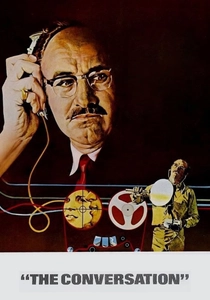
The Conversation (1974)
Description: A psychological thriller about surveillance, privacy, and the ethical dilemmas faced by a surveillance expert who becomes obsessed with his work.
Fact: The film was inspired by the growing public concern over privacy and surveillance in the 1970s. It won the Palme d'Or at the Cannes Film Festival.
 Watch Now
Watch Now 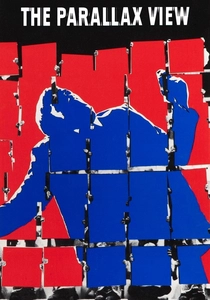
The Parallax View (1974)
Description: A conspiracy thriller that examines the paranoia and hidden machinations of power, with a journalist uncovering a shadowy organization's sinister plans.
Fact: The film's famous 'Parallax Test' sequence uses subliminal imagery to unsettle viewers. It was part of a wave of 1970s conspiracy thrillers reflecting post-Watergate distrust.
 Watch Now
Watch Now 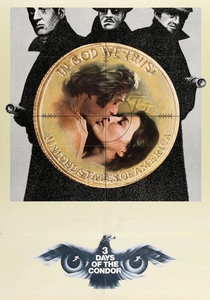
Three Days of the Condor (1975)
Description: A fast-paced spy thriller about a bookish analyst who becomes a target after uncovering a conspiracy, blending action with intellectual intrigue.
Fact: The film's title refers to the CIA codename of the protagonist. It was loosely based on the novel 'Six Days of the Condor,' with the timeline shortened for cinematic pacing.
 Watch Now
Watch Now 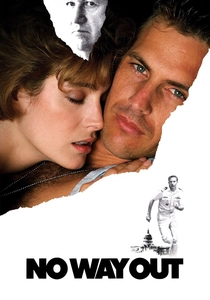
No Way Out (1987)
Description: A tense thriller involving espionage, mistaken identity, and a high-stakes chase within the corridors of power, highlighting themes of trust and deception.
Fact: The film's plot twists were inspired by real-life espionage cases. It features one of Kevin Costner's early leading roles.
 Watch Now
Watch Now 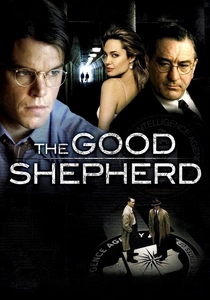
The Good Shepherd (2006)
Description: A detailed portrayal of the early days of the CIA, focusing on the personal and professional sacrifices made by intelligence officers, with themes of secrecy and betrayal.
Fact: Robert De Niro, who directed the film, also plays a minor role. The script was partially based on real events and figures from the CIA's history.
 Watch Now
Watch Now 
The Lives of Others (2006)
Description: A gripping exploration of surveillance and moral ambiguity within a repressive political system, focusing on the psychological toll on both the watcher and the watched.
Fact: The film's depiction of East Germany's Stasi was so accurate that former Stasi agents admitted it was realistic. It won the Academy Award for Best Foreign Language Film.
 Watch Now
Watch Now 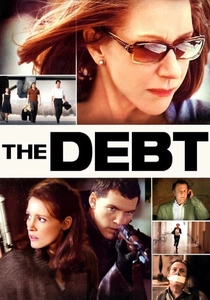
The Debt (2010)
Description: A gripping tale of espionage and moral reckoning, focusing on the long-term consequences of a mission and the lies that sustain its legacy.
Fact: The film is a remake of an Israeli movie of the same name. It shifts between two timelines, exploring how past actions haunt the characters decades later.
 Watch Now
Watch Now 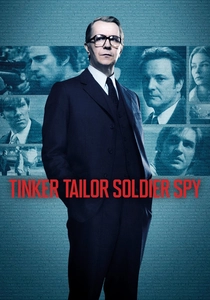
Tinker Tailor Soldier Spy (2011)
Description: A slow-burning espionage thriller that delves into betrayal, loyalty, and the paranoia of Cold War intelligence work, with a focus on internal politics and personal sacrifice.
Fact: The film is based on John le Carré's novel, and the author himself worked as a British intelligence officer. The movie's muted color palette was inspired by 1970s British photography.
 Watch Now
Watch Now 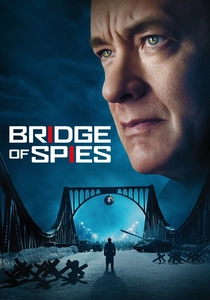
Bridge of Spies (2015)
Description: A Cold War drama centered on negotiation, espionage, and the moral complexities of loyalty and duty, set against the backdrop of tense US-Soviet relations.
Fact: The real-life lawyer James B. Donovan, portrayed in the film, also negotiated for the release of the Bay of Pigs prisoners. The movie marks the fourth collaboration between Steven Spielberg and Tom Hanks.
 Watch Now
Watch Now 
